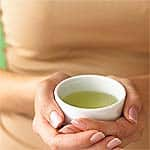Life Extension Magazine®
Study Advocates Minimum Daily Intake of Fish Oil | |
| Current clinical data suggest that a threshold level of omega-3 fatty acids protects against heart disease and should be endorsed by authorities.* The latest research reviewed six studies of the relation between intake of long-chain omega-3 fatty acids (eicosapentaenoic acid [EPA] and docosahexaenoic acid [DHA]) and the risk of death due to coronary heart disease in US patients. Analysis revealed that rising fish oil intake was associated with a significant reduction in mortality risk. At an intake of 566 mg/day of EPA plus DHA, the mortality risk reduction was 37%. The American Heart Association already recommends two servings of oily fish per week, which provides approximately 400 to 500 mg of omega-3 fatty acids per day. The authors conclude that US authorities should establish an official recommendation for intake of 400 to 500 mg EPA plus DHA per day, which will help maintain cardiovascular health and prevent coronary heart disease death. Life Extension points out that while the American Heart Association’s suggestion that 400-500 mg of EPA/DHA a day is helpful, a number of published studies indicate that daily doses comprising about 1,400 mg of EPA and 1,000 mg of DHA may be optimal. Those with stubbornly high triglyceride levels or persistent inflammatory problems should consume even higher doses of EPA/DHA through their diet and with supplements. —Laura J. Ninger, ELS | |
| Reference | |
| * Harris WS, Kris-Etherton PM, Harris KA. Intakes of long-chain omega-3 fatty acid associated with reduced risk for death from coronary heart disease in healthy adults. Curr Atheroscler Rep. 2008 Dec;10(6):503-9. | |
Fish Oil Helps Prevent Illness in Children | |
Consumption of a fish oil supplement significantly decreases the likelihood of illness among healthy children in Thailand.* The effect is presumably due to long-chain omega-3 polyunsaturated fatty acids: eicosapentaenoic acid (EPA) and docosahexaenoic acid (DHA). The study enrolled 180 Thai schoolchildren aged 9 to 12 years. Children were randomly assigned to take fish oil (200 mg EPA and 1,000 mg DHA per day) or a placebo supplement (soybean oil) mixed into chocolate milk five days per week for six months. By study end, fewer children became ill in the fish oil group than in the placebo group (54% versus 67%), with fewer episodes of illness per child and shorter duration of illness. Illnesses that did occur in both groups were mainly upper respiratory tract infections; there was also a lower incidence of fever in the fish oil group. These findings suggest a beneficial effect of EPA and DHA on immune function. —Laura J. Ninger, ELS | |
| Reference | |
| * Thienprasert A, Samuhaseneetoo S, Popplestone K, West AL, Miles EA, Calder PC. Fish oil N-3 polyunsaturated fatty acids selectively affect plasma cytokines and decrease illness in Thai schoolchildren: a randomized, double-blind, placebo-controlled intervention trial. J Pediatr. 2008 Oct 17. | |
New Research Confirms Cardiovascular Benefits of Grapes | |
| A review published in Nutrition Research and an article published in the Journal of Gerontology: Biological Sciences report positive findings for grapes in reducing risk factors for cardiovascular disease.1,2 In the review, the authors evaluated the evidence for a cardioprotective effect of grape polyphenols. “Supplementation with grape seed, grape skin or red wine products may be a useful adjunct to consider for a dietary approach in the prevention of cardiovascular diseases, although additional research is required to support such a strategy,” they concluded.1 In the Journal of Gerontology, researchers at Michigan State University report that rats bred to develop salt-sensitive hypertension experienced a reduction in blood pressure and improved heart function after consuming powdered table grapes. “The inevitable downhill sequence to hypertension and heart failure was changed by the addition of grape powder to a high-salt diet,” noted Steven Bolling, MD, in whose laboratory the research took place.2 —Dayna Dye | |
| Reference | |
| 1. Available at: http://www.sciencedaily.com/releases/2008/10/081028103105.htm. Accessed November 4, 2008. | |
Green Tea Supplement Decreases Cardiovascular Risk Factors | |
A supplement capsule of green tea constituents improves several measures of cardiovascular health among US adults, according to a report published in the journal Nutrition.* In this study, 111 healthy men and women were randomly assigned to take a standardized green tea supplement capsule (containing decaffeinated extracts of Camellia sinensis) or matching placebo twice a day. By three weeks, blood pressure had decreased in the supplement group, and these results largely persisted three months later. Total cholesterol and low-density lipoprotein (LDL) declined in the supplement group among men and among patients with elevated LDL at baseline. Serum amyloid-alpha, a marker of inflammation, and serum malondialdehyde, a marker of oxidative stress, both declined after supplementation. No significant beneficial changes were found in the placebo group. A green tea supplement therefore may mitigate cardiovascular risk factors in patients with elevations of blood pressure, cholesterol, inflammation, and oxidative stress. —Laura J. Ninger, ELS | |
| Reference | |
| * Nantz MP, Rowe CA, Bukowski JF, Percival SS. Standardized capsule of Camellia sinensis lowers cardiovascular risk factors in a randomized, double-blind, placebo-controlled study. Nutrition. 2008 Oct 8. | |
L-Carnitine Slows Signs of Aging in Rats | |
| Supplementation with L-carnitine improves muscle function, reduces abdominal fat, and slows bone loss in two rat models of aging.1,2 L-carnitine is an amino acid that aids in fat metabolism and generation of energy. In the first study, aged rats were given a diet supplemented with L-carnitine or a control diet for 12 weeks.1 Aged rats had 34% lower levels of L-carnitine in their muscle cells than younger rats, but supplementation restored levels of L-carnitine. Supplementation also improved the muscle’s oxidative capacity by 55% and decreased abdominal fat mass despite no change in the amount of food intake. In another study, a rat model was used to simulate postmenopausal bone loss.2 Aging female rats subjected to ovary removal were treated with L-carnitine or a control diet for eight weeks. L-carnitine significantly increased bone mineral density and decreased bone turnover. The results suggest a future role for L-carnitine to prevent age-related muscle atrophy, body weight gain, and bone deterioration in humans. —Laura J. Ninger, ELS | |
| Reference | |
| 1. Bernard A, Rigault C, Mazue F, Borgne FL, Demarquoy J. L-carnitine supplementation and physical exercise restore age-associated decline in some mitochondrial functions in the rat. J Gerontol A Biol Sci Med Sci. 2008 Oct;63(10):1027-33. | |
Vitamin E Decreases Lung Cancer Risk | |
Vitamin E (alpha tocopherol) reduces the risk of lung cancer according to a recent case-control study.* Vitamin E is known for its antioxidant effects. Investigators reviewed the dietary habits and vitamin E intake of 1,088 patients with lung cancer and 1,414 healthy controls of similar age and smoking status. Subjects taking vitamin E as alpha tocopherol were divided into four groups from the lowest intake (≤4.1 mg/day) to the highest (>7.7 mg/day). Compared with the lowest intake, progressively higher intake of alpha tocopherol was associated with decreases in lung cancer risk of 34%, 36%, and 53%, respectively, after controlling for other risk factors. Other tocopherols (beta, gamma, and delta tocopherol) did not provide meaningful risk reduction on their own. Mean intake of alpha tocopherol in this study was 5.5 mg/day among patients and 6.3 mg/day among controls, which the authors note is markedly lower than the recommended daily allowance of 15 mg/day. While this study result is intriguing, Life Extension points out that the subjects in these study groups did not consume the higher potencies of alpha and gamma tocopherols taken by many health-conscious people today. It is therefore difficult to extrapolate these findings to serious vitamin E takers. —Laura J. Ninger, ELS | |
| Reference | |
| * Mahabir S, Schendel K, Dong YQ, Barrera SL, Spitz MR, Forman MR. Dietary alpha-, beta-, gamma- and delta-tocopherols in lung cancer risk. Int J Cancer. 2008 Sep 1;123(5):1173-80. | |
Powerful Weight-Loss Extract Introduced at Functional Foods Conference | |
Nutritional scientists from around the globe met to share new research findings at the fifth annual Functional Foods for Chronic Disease conference in Baton Rouge, Louisiana, in October. The participants covered a wide variety of topics, including functional food components that assist with obesity-enhanced colon cancer, the use of amaranth oil for diabetic patients with obesity, and how broccoli protects the heart. The highlight of the conference was the startling presentation by Dr. Julius Oben, who has participated in more than 50 studies in the field of weight loss. The Head of the Laboratory of Nutrition and Nutritional Biochemistry at the University of Yaoundé, Cameroon, he revealed the latest clinical evidence on a recently developed extract from the seed of the Irvingia gabonensis fruit, also known as bush mango and ogbono, which grows in Cameroon and neighboring regions of Nigeria. Dr. Oben was performing epidemiological studies in African tribal populations when he noted that people in a certain region had low incidences of obesity, diabetes, and related diseases. Exploring further, he found that they use irvingia paste to thicken soups an average of ten times per week. This led to the development of a concentrated extract that stimulates fat loss while promoting healthy cholesterol and blood sugar levels. Leptin is a hormone that inhibits food intake in people of normal body weight by reducing the hunger signals from the brain. However, obese individuals often produce so much leptin that their cells become resistant to it. A patented irvingia extract was shown to improve leptin sensitivity, so the test subjects felt less hunger and ate less. The extract was also shown to increase the levels of adiponectin, a hormone secreted by fat cells that promotes insulin sensitivity. When more blood sugar makes its way inside the working cells, less is delivered to the fat cells for storage. Adiponectin has anti-inflammatory and cardiovascular benefits as well. Dr. Oben discussed the results of a 10-week double-blind, placebo-controlled trial with 102 volunteers who were instructed to maintain their same diet and exercise patterns. They took 150 mg of a second-generation irvingia extract twice daily. In 10 weeks, the group using irvingia lost 28 pounds of body weight, while the placebo group lost only 1.5 pounds. The participants using irvingia also saw a 31% reduction in fasting blood glucose, a 26% drop in total cholesterol, and a 27% decline in low-density lipoprotein (LDL). Equally important were the findings that irvingia lowered C-reactive protein (an inflammatory marker) by a stunning 52%, while adiponectin levels increased 160% and leptin concentrations dropped nearly in half (48%). Other presentations added to our knowledge of functional foods. Subhendu Mukherjee from the University of Connecticut’s School of Medicine showed how the enzyme thioredoxin reductase plays a crucial role in broccoli’s cardio-protective benefits, while Dr. Jairam Vanamala from Colorado State University astonished the audience with his finding that one pound of charred meat fat contains as many carcinogens as 600 cigarettes. Amaranth oil was found to promote dramatic reductions in blood pressure and cholesterol levels, although the current cost of the oil exceeds that of many medicines. The Functional Foods Center holds this conference every fall to promote cooperation among scientists and to spearhead research in this fast-growing area of scientific study. —Dave Tuttle |








